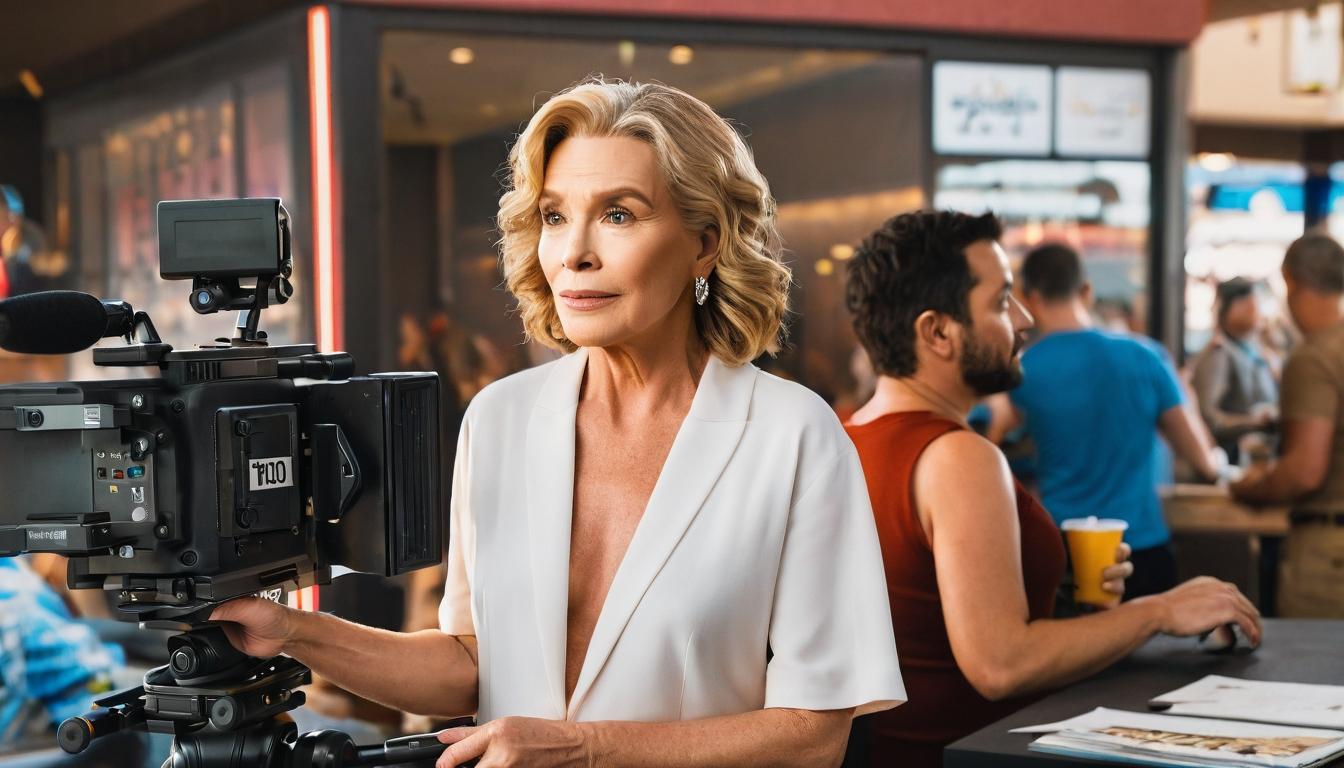There's a peculiar contradiction unfolding across our screens. We're living through what should be Hollywood's most creative renaissance—more content than ever before, unprecedented production budgets, and global distribution networks that can deliver any story to any corner of the planet. Yet something feels missing. The very abundance that promised to democratize entertainment has instead created a content glut that leaves even the most dedicated cinephiles feeling strangely disconnected from the art form they love.
Walk into any film festival these days, and you'll hear the same whispered concerns among industry veterans. The conversation has shifted from celebrating individual films to worrying about the entire ecosystem. When every streaming service needs to fill its pipeline with original content, the result isn't necessarily more great art—it's more art designed to satisfy algorithms rather than human souls. The metrics have changed, and with them, the stories we tell.
Consider the curious case of the mid-budget drama, once the backbone of Hollywood's creative output. These films—the kind that launched careers and won Oscars—have largely vanished from studio slates. Why risk $40 million on a thoughtful character study when you can spend $200 million on a franchise installment with built-in audience recognition? The economics make sense on paper, but the cultural cost is becoming increasingly apparent. We're losing the films that used to bridge the gap between blockbuster spectacle and indie experimentation.
Streaming platforms promised to solve this problem by providing homes for the challenging, unconventional projects that studios had abandoned. And initially, they delivered. But as subscriber growth has slowed and investor pressure has mounted, the streaming revolution has begun to resemble the very system it sought to replace. The endless scroll of content starts to feel less like curation and more like desperation—a digital buffet where every dish tastes vaguely similar.
What's particularly fascinating is how this content explosion has affected our viewing habits. Research from multiple entertainment tracking firms shows that the average viewer now spends more time deciding what to watch than actually watching. The paradox of choice has never been more apparent. With thousands of options at our fingertips, we've become less adventurous, more likely to retreat into familiar franchises or algorithmically recommended comfort food.
This isn't just about entertainment preferences—it's about how we process stories as a society. When films and series become disposable content designed for immediate consumption rather than lasting cultural impact, we lose something fundamental about the communal experience of storytelling. The watercooler conversations that used to unite offices and neighborhoods have fragmented into millions of private viewing sessions, each with its own customized algorithm.
The internationalization of content presents another layer of complexity. While it's undoubtedly positive that stories from South Korea, Nigeria, and Colombia can find global audiences, there's a homogenizing effect at work. As streaming services seek universal appeal, regional specificity often gets smoothed into something more palatable for international markets. The very qualities that made these stories unique risk being diluted in the quest for broader accessibility.
Behind the scenes, the human cost of this content revolution is becoming increasingly apparent. Writers rooms have become assembly lines, with creatives cycling through projects at an unsustainable pace. The traditional development process—the slow simmer of ideas that often produced the most memorable stories—has been replaced by rapid-fire greenlighting and equally rapid cancellations. The result is a creative community that's simultaneously overworked and underutilized, producing more but creating less.
Perhaps most concerning is what this means for emerging voices. The pipeline that once nurtured new talent through smaller projects has been largely dismantled. Without the mid-budget films that used to serve as proving grounds, how will the next generation of filmmakers develop their craft? The streaming services that promised to democratize storytelling have instead created a system where unknown creators struggle to be heard above the noise of established franchises and A-list vehicles.
There are glimmers of hope, of course. The recent success of genuinely original films like "Everything Everywhere All at Once" proves that audiences still hunger for fresh perspectives. The growing popularity of specialized streaming services focused on specific genres or international cinema suggests that niche audiences are seeking alternatives to the mainstream platforms. And the theatrical experience, while transformed, continues to offer something that home viewing cannot replicate.
What's needed now isn't less content, but better curation. Not algorithm-driven recommendations based on viewing history, but human-guided discovery that introduces audiences to challenging, unexpected stories. We need platforms willing to take creative risks rather than simply chasing engagement metrics. Most importantly, we need to remember that great entertainment isn't just about keeping viewers occupied—it's about making them feel something genuine.
The solution may lie in returning to smaller scales and more intentional storytelling. The most memorable films and series of recent years haven't been the ones with the biggest budgets or the most aggressive marketing campaigns. They've been the projects with distinct voices and clear artistic visions—the stories that remembered they were speaking to human beings rather than data points.
As viewers, we have more power than we realize. Every time we choose an original film over a franchise installment, every time we seek out an international perspective, every time we prioritize substance over spectacle, we're voting for the kind of entertainment ecosystem we want to support. The streaming revolution promised us the world. It's up to us to ensure that world contains more than just endless variations of the same story.
The streaming paradox: Why Hollywood's golden age feels increasingly empty

